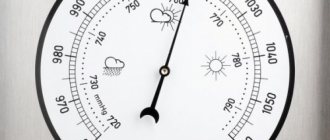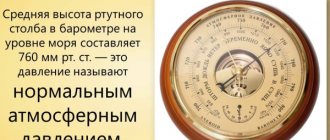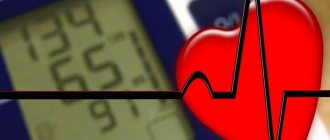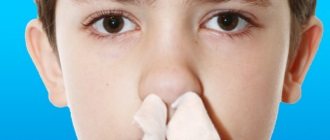The therapist told how to survive low atmospheric pressure
Photo: depositphotos/alinatroeva
Therapist Nadezhda Chernyshova, in a conversation with Moscow 24, advised weather-sensitive people to take a contrast shower and walk more during periods of low atmospheric pressure.
Earlier, leading employee Evgeny Tishkovets warned Muscovites about record low atmospheric pressure on Saturday, November 20. According to the forecaster, on this day it will be 718 millimeters of mercury. Tishkovets explained that with this indicator, a person seems to rise to a height of 300 meters.
According to Chernyshova, it is better to start preparing for a decrease in atmospheric pressure in advance.
On this day and even in the previous days, it is advisable to have some kind of physical activity, just morning exercises, light warm-up and a walk. A person needs to speed up the blood, increase the activity of the cardiovascular system through physical exercise and exercise. Nadezhda Chernyshova
general practitioner
“It could be a walk in the park, Nordic walking is very good, or you can do some kind of exercise in an apartment near an open window for ventilation,” advises Chernyshova.
A contrast shower will also help cope with low atmospheric pressure, says the therapist. According to the specialist, it will increase the tone of the cardiovascular system.
“I suggest for those who have never done this, start with a very simple thing - a contrast shower for the hands. That is, when we wash our hands, we alternately turn on unbearably hot and then ice-cold water. We switch quite quickly: keep your hands either in very hot or very cold water for 5–10 seconds. Three such cycles are enough,” explains the doctor.
Chernyshova warns that if a person has a cold, feels unwell or is weakened after an illness, then it is better to make the contrast minimal or postpone it altogether until recovery.
Another specialist recommendation during low blood pressure concerns sleep.
You need to get a good night's sleep, sleep enough hours. When the body has gained strength during sleep and has replenished all its resources, it will tolerate low atmospheric pressure much easier. Nadezhda Chernyshova
general practitioner
What you definitely shouldn’t do is overuse strong coffee during this period, the specialist warns. “The fact is that coffee stimulates the nervous system too much, fuels it too much and ultimately depletes it. At least in the previous days, try to limit or eliminate coffee,” the doctor advises.
According to Chernyshova, it is better to give preference to invigorating herbal infusions with ginseng, Chinese lemongrass or St. John's wort. You can also drink a hot drink with lemon and ginger, the specialist said.
The doctor added that if a person is absolutely healthy, then low atmospheric pressure will not affect his well-being. At the same time, people with chronic cardiovascular problems, those who have recently been ill or have serious chronic diseases should take care, says the therapist. According to the expert, their blood vessels simply do not have time to react to the sudden change and bring internal pressure into line with atmospheric pressure.
“This does not mean that you have to lie under the covers on this day. Activity is still needed, but it is better not to plan serious tasks that require a lot of concentration or a lot of physical strength for this day. Let it pass in a calm manner, in a gentle routine,” concluded Chernyshova.
Earlier, cardiologist, Honored Doctor of the Russian Federation Yuri Kremnev said that pressure surges may be observed after coronavirus. This, according to the specialist, is a manifestation of post-Covid syndrome, which may go away on its own after some time.
Who suffers more often from weather changes?
The influence of atmospheric pressure can be felt anywhere! From the big city to the mountain peaks and the interior of an airliner.
Urban residents, who are most affected by pressure drops, are divided into two groups:
- Weather dependent. These include people whose diseases cannot be clearly divided into psychological and physiological. Even without the influence of weather conditions, they are susceptible to mood swings, excessive sweating, headaches, apathy, nausea and dizziness. This happens as a result of exacerbation of diseases under the influence of weather fluctuations.
- Suffering from heart and vascular diseases. These include hypertension and coronary heart disease. The response to increased atmospheric pressure in such people is headache and heart pain, dizziness, nausea and vomiting, angina attacks and increased blood pressure. Hypotonic and hypertensive patients experience general weakness and decreased performance.
Diseases aggravated by weather dependence:
- pathologies of the respiratory system (bronchial asthma, obstructive pulmonary disease, hypertension, etc.);
- damage to the central nervous system (risk of recurrent stroke and brain damage);
- hypotension and arterial hypertension (the risk of hypertensive crisis, myocardial infarction and stroke increases sharply);
- Cardiovascular pathologies (arterial sclerosis, in which detached plaques can cause thrombosis and thromboembolism).
Some people do not feel the impact of changing weather conditions at all. They can change time zones and climate zones without unpleasant symptoms, while their well-being and state of health does not change.
Others, even with a slight fluctuation in temperature outside the window, feel the influence of the weather. This sensitivity is usually called weather dependence.
Decreased
Low air pressure is less than 750 mmHg. Art. Forecasters call the area where it is observed a cyclone.
A cyclone is accompanied by a high level of air humidity, precipitation, rain, cloudiness, and a slight decrease in temperature. The oxygen concentration in the air decreases and the carbon dioxide content increases. This provokes insufficient oxygen saturation of the blood, and the heart muscle functions under increased stress.
The cyclone affects humans as follows:
- the breathing rhythm becomes more frequent;
- heart rate increases;
- the striking force of the heart decreases.
So what should you do if you feel like the weather is having a big impact on you?
Try keeping a journal of how you feel. If deterioration occurs, write down what exactly hurt, what the weather was like at that moment and other factors that you consider important. Then, after analyzing the data for a more or less long period, you will be able to predict in advance an attack of poor health, which means taking preventive measures. In addition, such a diary will become an invaluable source of information if you decide to see a doctor.
Hardening, physical activity, proper nutrition - all this will be good prevention. Try to get a good night's sleep. You can add chamomile, mint to tea, brew rose hips, or resort to other soothing and relaxing remedies. It is also better to give up alcohol and limit the amount of coffee, tea and other stimulants.
Dependence of blood pressure on atmospheric pressure
The level of atmospheric pressure changes due to territory, proximity to the equator, and other geographical features of the area. In the warm season (when the air is warm) it is minimal; in winter, when temperatures drop, the air becomes heavier and presses as much as possible. People quickly adapt if the weather is stable for a long time. However, a sharp change in climatic conditions directly affects a person, and if there is a high sensitivity to temperature changes, well-being worsens.
Weather sensitivity in adults and children: who is at risk
During evolution, the human body has learned to adapt to changes in weather conditions. If the weather situation changes evenly and insignificantly, healthy people, as a rule, do not notice it. Persons suffering from chronic diseases are a different matter. In this case, in response to changes in weather conditions, a person may experience a pathological (meteotropic) reaction. By the way, if earlier experts believed that mainly older people suffered from weather sensitivity, in recent years they have recorded a significant “rejuvenation” of the disorder. This is associated with acceleration (accelerated development of the body) of modern people. In addition, some researchers suggest that this disorder may be hereditary, and it is also worth remembering the meteosensitivity of infants.
As observations show, the level of manifestation of meteosensitivity depends on various factors:
- age and gender of the person;
- form and stage of the disease (chronic);
- type of nervous system;
- level of adaptive capabilities of the body.
It is known that residents of different climatic zones may have their own characteristics and manifest themselves in different ways. A weather-sensitive person does not necessarily react to all the vagaries of nature (changes in atmospheric pressure, magnetic storms, humidity, etc.); only one of the factors can cause deterioration in well-being, while others go unnoticed by the body.
Recently, researchers have become seriously interested in the impact of meteorological factors on human sensory organs (vision, hearing). It turned out that visual weather patterns (clouds, rain, rainbows, etc.) can influence the external behavior (actions, speech) of a weather-sensitive person. While auditory meteorological images cause changes in internal behavior (thinking, motivation, imagination, faith). Interestingly, a person can perceive weather sounds at a distance of more than 50 km from the source.
Is weather sensitivity a disease of modern people?
Someone might think that the dependence of one’s well-being on weather conditions is the lot of modern people and that bad ecology or frequent stress is to blame. In fact, the reasons are different. Let's say more, even in ancient times, people noticed that changes in the weather affected their well-being.
Content:
- Is weather sensitivity a disease of modern people?
- Why do we react to the weather?
- Meteopathy and meteosensitivity: how to recognize
- Weather sensitivity index: how to determine
- Meteopathological syndromes
- Weather sensitivity in adults and children: who is at risk
- Weather factors affecting well-being
- Why is weather sensitivity dangerous?
- Treatment of weather dependence
Hippocrates mentioned weather dependence in his writings approximately 400 BC. The ancient Germans noticed that in damp, cold weather joint pain became more frequent and they called this condition nothing more than weather pain. And Tibetan doctors even believed that any illness was, to one degree or another, related to weather conditions. In later times, researchers assumed that even a change in wind direction could affect a person’s well-being, and constant alternations of warm and cold atmospheric fronts were called the main cause of illness.
Increased
Barometric pressure is considered elevated if its reading exceeds 760 mmHg. Art., in meteorology it is present in areas of anticyclones.
Under anticyclone conditions, there are almost no sharp jumps in temperature and precipitation. The weather is clear, there is no wind. At the same time, the content of harmful substances in the air increases.
Due to an increase in atmospheric pressure, the number of leukocytes in the blood decreases. This means that the body’s immune capabilities decrease – it becomes vulnerable to various infectious pathogens.
The effect of high atmospheric pressure on a person is marked by certain symptoms: headache, a feeling of weakness throughout the body, decreased ability to work, and increased blood pressure.
On days like these, it is recommended to protect yourself from emotional overload and avoid physical fatigue.
What to do
Maintain a normal blood pressure level and adjust it if necessary. First of all, you should measure it at least twice a day.
It is important to minimize the negative impact of weather conditions on the human body and maintain normal well-being.
This will help you a lot:
- good sound sleep;
- balanced diet;
- sports and exercises;
- walking in the fresh air.











